|
DAVINCI - LEDA and the SWAN - PAGE 7
|
Heidi |
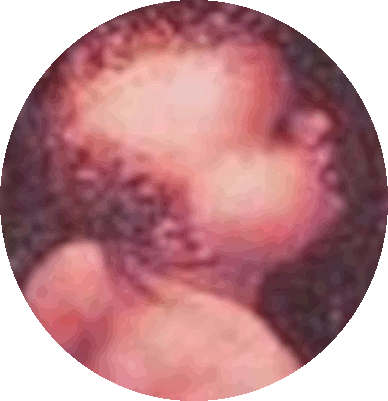
Baby Heidi |
- Heidi, who was born in Switzerland in 1880, was orphaned as an
infant.
- Her given name was Adelheid.
- Her father,
Tobias, died in a construction accident and
her mother, who was also named Adelheid, died of grief a few months later.
Rough winds do shake the darling buds of May.
(Shakespeare)
|
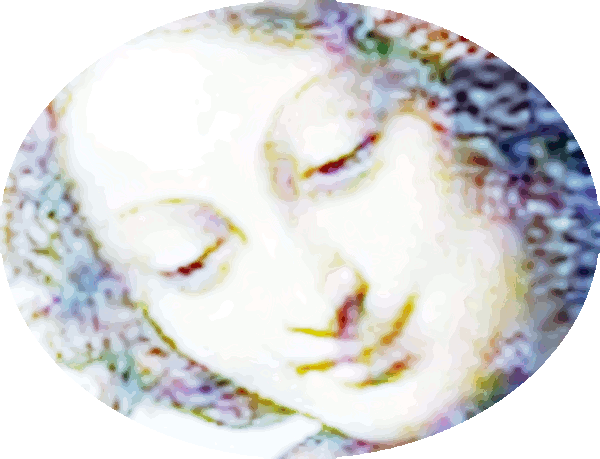
Heidi in bonnet |
|
- She lived with her mother's sister, Aunt Dete for
four years, who could no longer
care for Heidi because she had a new job as a maid in Germany
at the noble home of the Sesemann's.
- So many had trouble finding employment in the 19th century,
Aunt Dete was willing to move to a different country, like many
others during that period, but unfortunately, she couldn't
take Heidi with her.
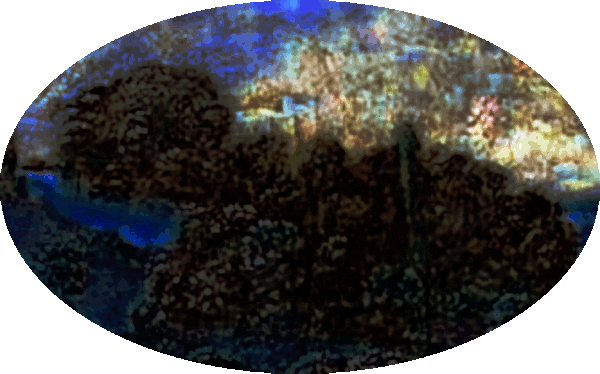
Potato blight |
|
- Poverty, hunger and inhumane factory conditions were widespread in 19th-century Switzerland.
- Due to the same potato blight that hit Ireland, between 1850 and 1888,
over 330,000 Swiss emigrated, most headed for the United States.

Heidi and her Aunt leaving the village |
- In 1885, Aunt Dete took
Heidi, who was 5-years-old, to live with her paternal Grandfather, called Alp-Öhi, a Swiss German expression meaning
Uncle on the Alp, a goat herder, who lived
in seclusion in the Swiss Alps.
- Grandfather had blamed
God for Heidi's parents death and he was very bitter about it.
- This was the only family and close connection he had with
the world.
God hath given you one face, and you make
yourselves another.
(Shakespeare)
|

Grandfather leaving the village for the
wilderness |
- Grandfather lived by himself for many years after returning from service
in the Italian army in Naples with a son, Tobias, and without
a wife.
- The villagers gossiped about his life in Naples
and ostracized him and told rumors about him.
- Meanwhile,
his older brother, who was heavily involved in the rumors,
never left the village and wasted the family fortune on
drinking and gambling.
- Grandfather was forced to retire
in seclusion to a small cabin in the Alps on Alm Mountain,
where he raised his son, Heidi's father.
There is nothing either good or bad, but thinking makes it so.
(Shakespeare, Hamlet)
|
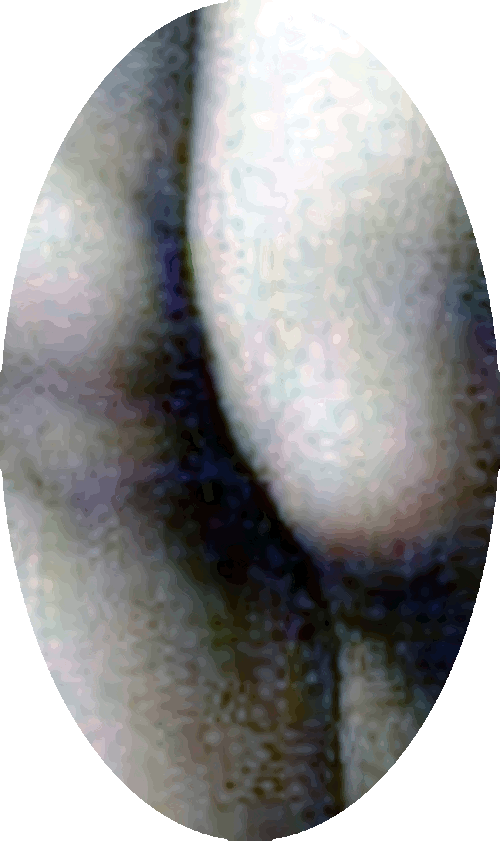
Heidi leaving |
- The neighbors in the small village of Maienfeld that Heidi lived
in all objected to her move to the mountains.
- This is
because, in their eyes, her grandfather, who lived up the mountain from
the village Dörfli., was a bitter old man who was out of touch with
society and especially with their religion.
There is no darkness, but ignorance. (Shakespeare)
|
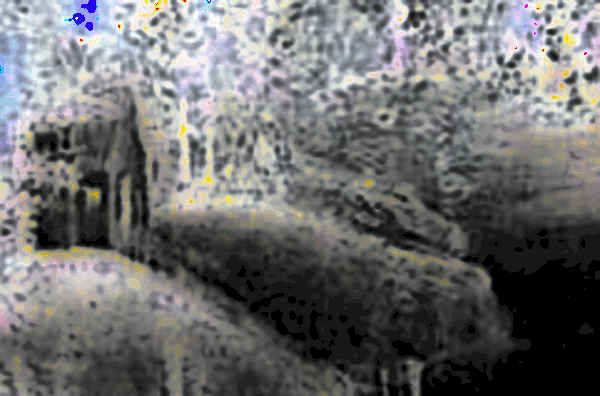
Grandfather's dusty cabin in the Alps |
- At first, her Grandfather did not welcome Heidi but
in a short time he began to change and accept her.
- By the
time Heidi had been in the mountains a few weeks, she felt very
free, living with her aunt had been very oppressive and restrictive
because of all her strict rules.
- Her
Grandfather was very different than Heidi, together, they were quite an odd couple.
- He was also quite a bit different than her aunt, and gave
her a lot more independence, something Heidi had never known.

Heidi's spirit soars in the Alps |
- Heidi was very happy in the mountains, and her spirits soared.
- She loved her new life and her happiness and joy
softened her old Grandfather's heart.
- Heidi was soon
helping him with some of the chores he was having a hard time
with, such as milking the goats.
And though she be but little, she is fierce.
(Shakespeare, A Midsummer Night’s Dream)
|
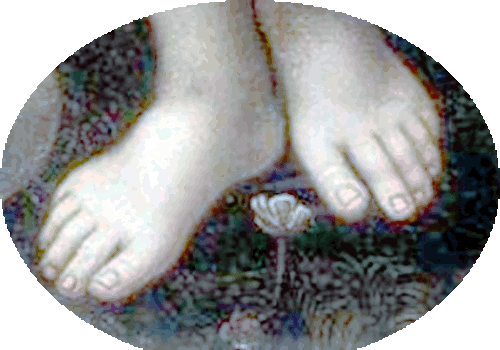
Heidi enjoys summer in the Alps |
-
Heidi spent the summer running barefoot and exploring the
mountain and meadows.
- She made new
friends with a goat herder, Peter, his mother Brigitte, and his blind Grandmother,
among others.
A friend is one that knows you as you are, understands where you have been, accepts what you have become, and still, gently allows you to grow.
(Shakespeare)
|

Alpine pines |
- Heidi spent every day in the meadows with Peter and
his beloved goats.
- She had the opportunity to witness and enjoy the variety of flowers and the beauty of nature
in the Alps.
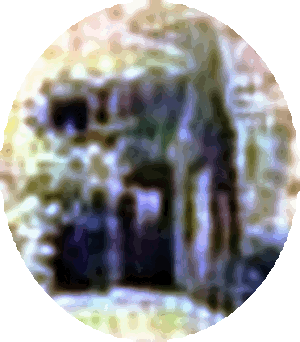
Church and school in the village |
|
- After two happy years passed, the village pastor
and schoolmaster came to the cabin to talk to Grandfather about enrolling Heidi
in school since she was age 7 and it was time for first grade.
- Heidi's grandfather felt
that she would be spoiled in the village and wouldn't want to
come back, so he told the pastor she wouldn't be attending.
- He also knew he would need to move to the village with Heidi
if she attended school, and he didn't want to do that.

Aunt Dete returns |
- Three years after moving to the Alps, her Aunt Dete
suddenly reappeared at the cabin.
- Aunt Dete told Heidi she found
her a job in Frankfurt as a companion to a wheelchair-bound girl
named Klara Sesemann who was the daughter of her employer.
- Her aunt was anxious for Heidi to
leave with her for Frankfurt because her Grandfather had
refused to send Heidi, age 8, to school and church and she was
illiterate.
- Dete wanted Heidi to improve her life by
getting an education and she wanted to keep her vow to Heidi's
mother to do the very best for her.
Love sought is good, but given unsought better.
(Shakespeare, A Midsummer Night’s Dream)
|
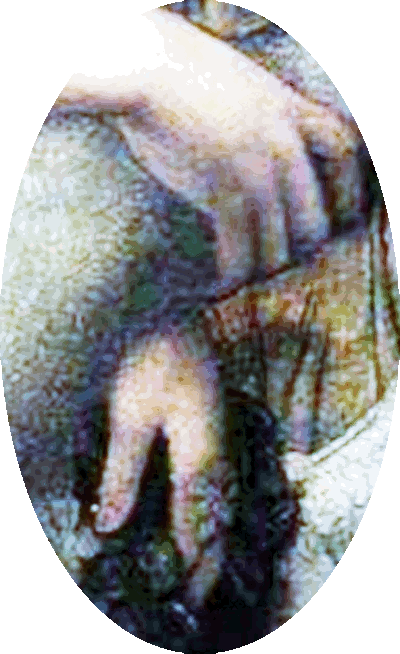
Heidi gives up mountain life for the city |
- Heidi reluctently left for the city with her aunt who
knew Heidi was upset; she promised Heidi she could go back to
the cabin if she didn't like Frankfurt.
- Grandfather was extremely upset and didn't want Heidi to
leave.
- Peter and his mother and grandmother were in despair
when they heard the news.
- She had to leave all
her friends and the life she loved behind.
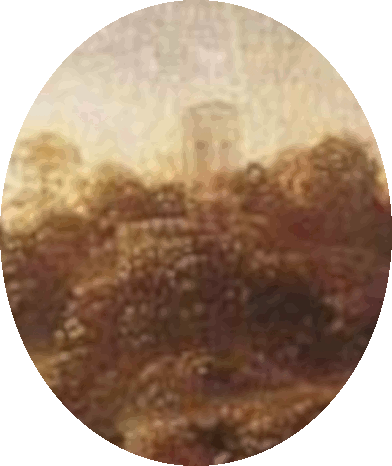
Frankfurt |
- Once at Sesemann's oppulent house, Heidi, who was hired
as 'lady's companion' quickly became best
friend with Klara, who was unable to walk and classified as an
invalid.
- Klara was raised by her widowed father.
-
Heidi also was close to Klara’s grandmother, who
taught her about God, through Bible stories, and also how to read and write.
-
Grandmother also tudored Klara since it would be so hard for
her to attend school in a wheelchair in those days.
-
Because of this, it was easy for her to include Heidi in the
instruction, and she enjoyed Heidi because she was so
hard-working, appreciative and optimistic.

|

Spring and summer and autumn |

|
- Heidi brought a breathe of fresh air to the
Victorian mansion and Klara's grandmother not only taught her about the
Most High, but also gifted her with her first book, 'The
Prodigal Son.'
-
Klara's father noticed how happy his daughter was, and how her
health was improving since Heidi came to stay with them.
Shall I compare thee to a summer’s day?
(Shakespeare, Sonnet 18)
|
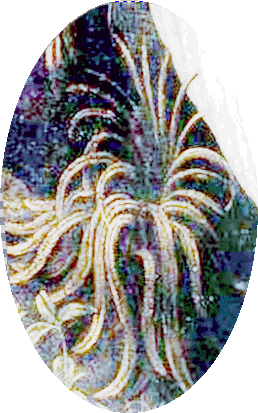
House plant |
- Unfortunately, the servants, especially the coldhearted, stern, Miss Rottenmeier,
made Heidi very unhappy, and she desperately missed the mountains.
- She didn't appreciate Heidi's liveliness and felt she
was a household disruption, so she forbid Heidi from talking
about the Alps and how she missed home.
O, how full of briers is this working-day world!
(Shakespeare)
|
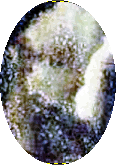
Miss Rottenmeier |
-
Both girls played numerous pranks on the evil and tyrannical governess
as result.
- The pranks delighted not only the two young girls, but also the servant Sebastian, who
became the girls' secret helper.
Ay, to the proof, as mountains are for winds, that shakes not, though they blow perpetually. (Shakespeare,
The Taming of the Shrew)
|

Heidi in busy city
Frankfurt |
- Heidi confronted a completely new and unknown world in Frankfurt.
- Instead of rustling pines, mountains and meadows, Heidi now
had to deal with wide city streets, noise, pollution and congestion.
- She felt trapped living in the city, shut up in the mansion of an upper-class German family, she
soon felt out of place and discontent.
- Heidi was having
a hard time relaxing and lost many hours of sleep.
- She
didn't have the same healthy food to eat, such as goat's milk
and fresh honey, and she became very thin and pale.
Let her sleep, for when she wakes, she will move
mountains. (Shakespeare)
|
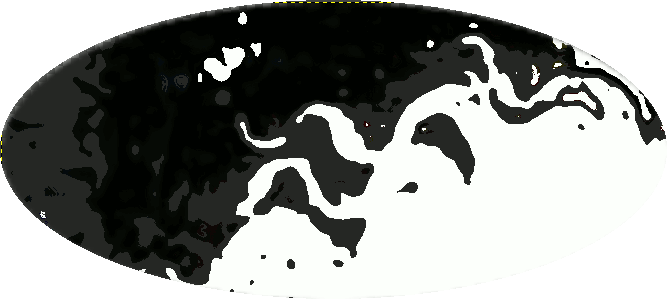
Ghost roaming the house |
|
- Klara's family became alarmed and started to report that a
ghost was roaming their home every night.
- Eventually,
they figured out that the ghostly sighting was Heidi, whose homesickness
and lack of sleep, caused her to sleepwalk.
- Seeing that she was homesick, the family physician, Dr. Classen, insisted that she return to her
grandfather's Alpine home to recover.
- After spending two
educational and loving years with the family, the farewell was very difficult, especially for Klara.
By heaven, I'll make a ghost of him that lets me.
(Shakespeare, Hamlet)
|
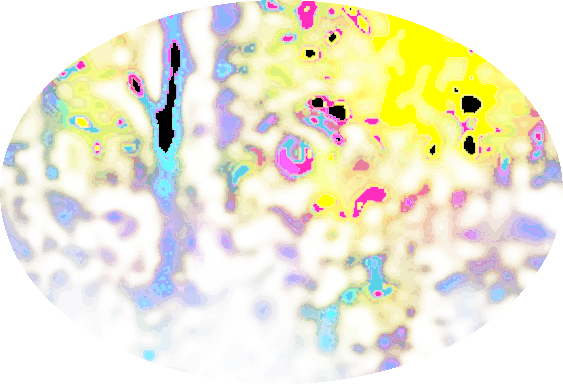
Butterflies spring |
|
- Heidi returned to the mountain to a joyous welcome late in
the spring.
Daffodils,
That come before the swallow dared, and take
The winds of March with beauty. (Shakespeare, The Winter’s Tale)
|

Heidi's new book |
|
- Peter was overjoyed with Heidi's return and they spent time
together attending to his goats in the meadow.
- Heidi
spent hours reading to Peter's blind grandmother with her new
reading skills that she learned in Frankfurt.
- She also
began to teach Peter how to read and write.
One touch of nature makes the whole world kin.
(Shakespeare)
|
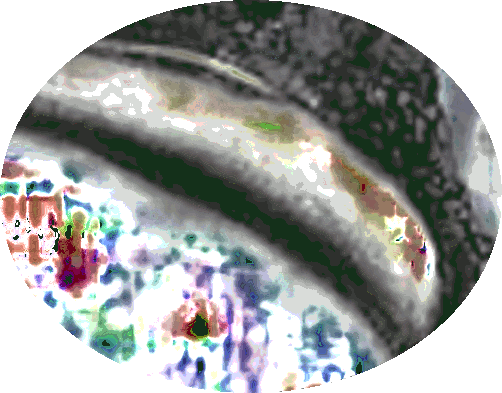
Swiss ceramic cookie jar
|
|
- Grandfather was so overjoyed, he returned to society and
mingled with old friends in the village, something he hadn't
done since he was young.
- Due to Heidi's encouragement, Grandfather began to pray, and the two later attended church
together.
- In the evening, Heidi would
make hot chocolate and read to him, which they both enjoyed.
- They would drink the milk with the cookies all
his friends in the village baked for him.
One day Heidi reads to him "The Prodigal Son" from a book Frau Sesemann gave her. That night Alm-Uncle prays for the first time in years. (Wikipedia)
|

Klara visits the Alps |
- Some time after Heidi returned to the cabin, Klara wrote
her a letter and the two started to exchange letters.
- Klara's health went downhill after Heidi left the city and
her doctor was very concerned.
- The doctor came to see Heidi,
which led him to eagerly recommend that Klara visit the Alps,
because he believed that the mountain environment and the companionship
would do her good.
- By the second summer, Klara and
her grandmother finally came for a visit.
- The Alps were like a magical world
to Klara since she had never traveled outside of the city.
Our peace shall stand as firm as rocky mountains. (Shakespeare,
Plays, 1823)
|

Wheelchair on sidewalk |
- This was quite a challenge
because the mountain life made it harder for Klara and her
wheelchair to move around.
- In the city, the sidewalks
made it possible for her to go everywhere and she felt
restricted in the Alps although she loved it there.
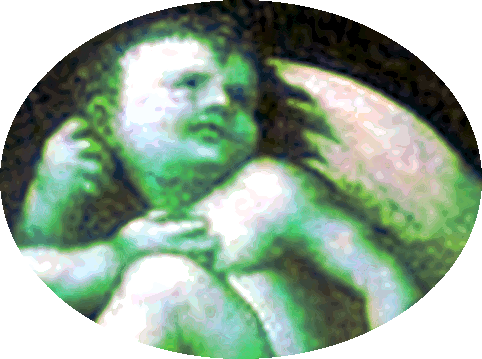
Jealous Peter trashes the wheelchair |
|
- Peter was extremely jealous of Klara because she was so close
to Heidi.
- One day, when he was alone, he pushed her wheelchair down the mountain where it
crashed and broke into several pieces.
- He calmed down and was filled with guilt, so he admitted
what he had done, and apologized to Klara.
O, beware, my lord, of jealousy; It is the green-eyed monster which doth mock the meat it feeds on. (Shakespeare,
Othello)
|

Loving care in the mountain |
|
- Because of the loving care of Grandfather, combined with
the fresh mountain air, and goat's milk, Klara was getting stronger
by the day.
- Left without a wheelchair, Klara was forced
to learn to walk in order to get around.
- With help from Heidi and Peter, Klara began
working on her strength.
- She worked very hard and by the end of the summer was
beginning to walk by herself.
- When Klara's father, Mr.
Sesemann, came to take her back to the city, she ran up to him
on her own, and he was surprised, delighted and thrilled.
To climb steep hills requires slow pace at first.
(Shakespeare)
|

Front yard in the Alps in the winter
|
|
- Grandfather promised to live with Heidi in the village
that winter
so she could attend school.
- Grandfather reasoned that in the summer they could stay at
the cabin in the Alps.
- After the summer passed, Grandfather and Heidi moved to the
village.
- Peter also moved to the village with them and
his goats, so he could attend school
with Heidi.
We know what we are, but know not what we may be. (Shakespeare)
|

Sesemann mansion in Frankfurt |
- Klara's father, Mr. Sesemann, was so pleased with Klara's
progress walking on her own, which had improved as the months
went by, asked Grandfather what he could do for him to make up
for the wonderful gift of Heidi, who helped cure Klara.
It is a wise father that knows his own child.
(Shakespeare)
|

Graveyard |
|
-
Grandfather told him that he was only concerned that Heidi
would never be an orphan again, or left alone in the world by herself.
- Mr.
Sesemann promised Grandfather that he would take care of Heidi
in the event the old man died before she reached adulthood.
- This gave Grandfather great comfort because of his ailments
and age, he felt greatly relieved.
Be great in act, as you have been in thought.
(Shakespeare)
|
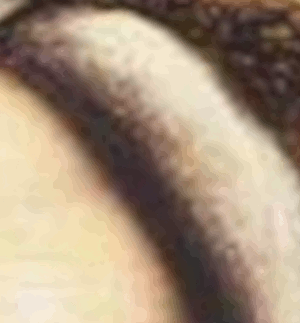
Feather bed for Peter's grandmother |
|
- Heidi's only wish was that Peter's grandmother have
a feather bed from Frankfurt with a pillow and thick blanket,
so she would never get cold again.
- Mr. Sesemann promised
both Heidi and her grandfather he would fulfull their wishes.
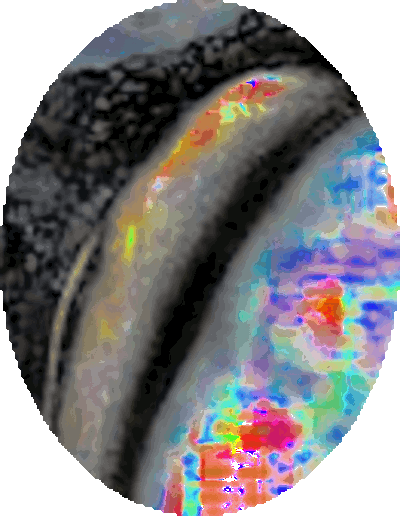
Wheel of fortune colors |
|
- In the end, it was a win-win for all.
- Heidi
found freedom in the mountains and was no longer illiterate
and she also found several new best friends.
- Aunt Dete
fulfilled her dead sister's wishes by setting up Heidi with a
good education and seeing her with solid connections.
-
Klara also found a new best friend and learned how to walk and
to be independent and she gained her health back.
-
Grandfather found his family again and recovered his
connection to the Most High and also reconnected with his
former friends. The most important thing, he gained the
confidence to know that Heidi would always be cared for.
-
Mr. Sesemann saw his daughter learn to walk and gain her
health and he was happier than everyone else.

Alps |
|
- The novel Heidi, written by Swiss author Johanna Spyri. was first translated into Japanese in
1920 and contributed to Heidi's international success.
-
Heidi's story was published in two books between 1880-81, and
since has been translated in 50 languages.
- The 1937 Hollywood movie by Allan Dwan, with child star Shirley Temple in the role of Heidi, was the first sound film of
the novel.
It is still apparent that in her texts Spyri
often showed her empathy with the fate of young women,
and especially with the fate of children. Hence most
of her books bore the subtitle, "A story for children
and also for those who love children."
(myswitzerland.com)
|
Moral of the story!
Once again, the same story about others judging a
book by its cover, in this case, Grandfather.
You can't blame him for running away, he didn't
want to stand in the shadow of others.
At some point, after much healing, encouraged by
Heidi, he learned to ignore others and their rumors,
in other words, just not care!
If it doesn't feel right in your soul, let it go;
oil and water don't mix.
The honorable place is to be nice to everyone, no
matter what they do to you. Reacting to mean people by
being mean just creates bad karma.
You never know what the bullies have been through
to make them the way they are.
Once you see through their hypocrisy, you'll never
care about their reactions to you again. Notice the
villagers told lies and rumors about him (without ever
asking him his true story) and then they told more
lies and rumors because he didn't attend 'their'
church.
React with benevolence, and never stand in the
shadow of another, who could never compare to you.
Keep your connection to the Most High strong.
Forgive everyone for everything, you don't have to
like them or be friends with them. Forgive yourself
too.
No man is an island and staying in touch with
community will help you when you set the correct
boundries, you know your value.
|

|
|
Whoever claims to love God yet hates a brother or sister is a liar. For whoever does not love their brother and sister, whom they have seen, cannot love God, whom they have not seen. (1 John 4:20)
|
|
|
As a well-spent day gives,
joy in sleep
so a well-spent life brings,
joy in dying.
Leonardo DaVinci

|

